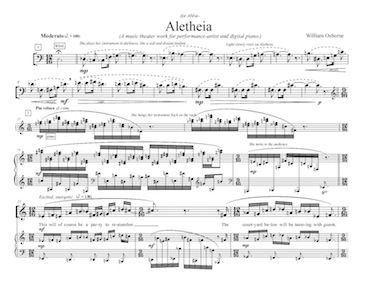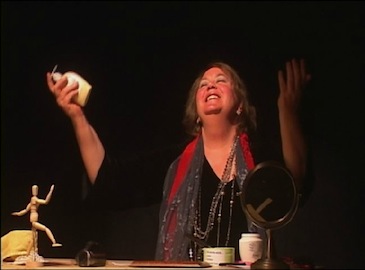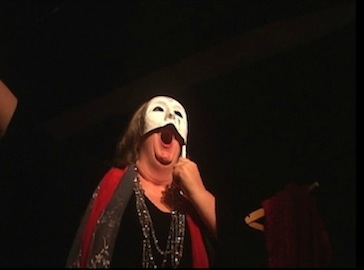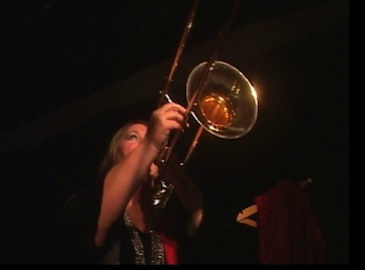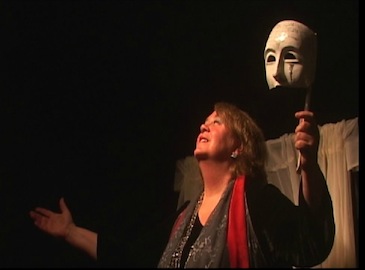Truth, or at least the effort to capture it, can be problematic. William Osborne and Abbie Conant have been working for several years on “Aletheia,” a music theater chamber piece for performance artist and digital piano. It feels like “forever,” he says. “The deeper we go the slower it reveals itself.”
The ambition of the piece, suggested by its title, may have something to do with that.
Osborne notes on their web site:
The ancient Greeks had several words for truth. Aletheia is one and means creating a space where truth can appear. It is related to Greek concepts of theater and ritual which were utilized to create a space in which the deific could present itself.
The ambiguity of experience also complicates their effort. “Nowadays,” he said in an email, “even the openings where truth might appear are usually only simulations. Some fake honesty, revelation, or religion, or science, to convince us, falsely, that we live in a democracy. I can’t complete ‘Aletheia,’ but I can’t stop. In some odd way I think most artists find that the truest opening is hopelessness. If nothing else, disillusionment can stop illusions. At least for a moment.”
The scenario begins in Aletheia’s dressing room. She is getting ready to perform at “a gala benefit for an opera house taking place in the courtyard below her window.”
Though excited at first, she can’t bring herself to go down and perform. As her sense of isolation increases, she becomes, in a sense, her own choir. Her voice splits into the harmonies of several voices that accompany her into a new level of being.


